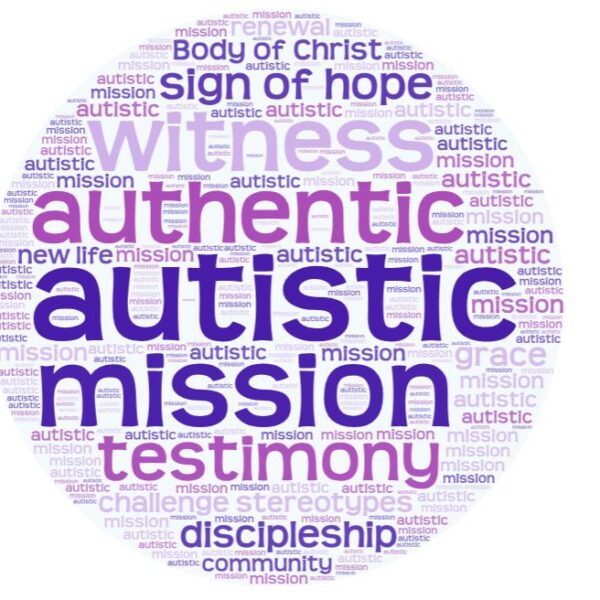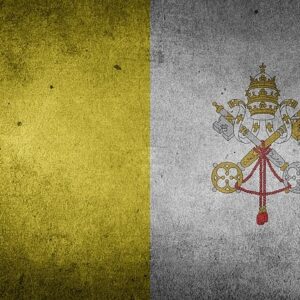Autism As Mission
We have written previously that autistic people are less likely to attend Mass than non-autistic people (e.g., our 2023 post, “Raise Your Hand If You’re Not Here”).
Our Daily Prayer for Autism’s Belonging for the Second Wednesday of Lent reads like this: “We pray for our autistic members who are not able to participate in Church liturgies and activities. May our autistic members be genuinely missed when absent. May we prayerfully consider what the barriers might be to their participation, and what the community can do to help address and relieve those.”
Which barriers might come to mind?
- Sensory load
- Health (both mental and physical)
- Energy level (vs. exhaustion)
- Quality of sleep (vs. chronic sleep deficit)
- Executive functioning
- Access to transportation
While each of these is relevant, if we are to be completely honest, we need to go further and acknowledge that – consciously or not – the community’s attitude toward neurodiversity is often the biggest and most difficult barrier. People may say outwardly that they welcome and encourage people of all abilities to come to Mass, but there remains a deep interior skepticism that autism is anything more than pop psychology’s attempt to stylize laziness and apathy toward decorum. These attitudes are not only grossly incorrect, but also do nothing to build up the Body of Christ. If anything, autistic members are isolated and wounded by this barrier more than all the others combined.
Ask any autistic person: If we were able to overcome such barriers as these through our own efforts and willpower, we would do so. Trying harder is not enough – and not within our grasp. Telling ourselves not to feel [exhausted, overwhelmed, anxious] is as useless as telling our cars to keep going when the fuel gauge reads “empty.” Our capacities and limits are what they are, and pushing past them is harmful, period. Those who encourage us to do so are operating on faulty, outdated, and disproven information.
Some have become so accustomed to the idea that merit is earned by acting well that they confuse patience and compassion for “special treatment.” But accommodations for autistic people are no more indulgent (or optional) than the “special treatment” shown by, say, bandaging and resting a sprained ankle… or by using supplemental oxygen when scuba diving.
Autistic people really do want to be present and participate. If we can’t remove the barriers for ourselves, what can we do?
Trust that we serve God best as our authentic selves, needs and all.
Diverting our energy from trying to live past our means starts by trusting God’s wisdom. Our capacities and limitations were designed, with purpose, by Our Creator. Trust that God intends some members of the Body of Christ to process at a different pace, to be deeply affected by what we see and hear and taste and ponder, and, yes, to need patience and assistance from others as a result of our body’s design. Trust that God calls even those of us whom the world writes off to be disciples. Believe that the fruit of this discipleship is cultivated in part by the extra time, extra space and extra understanding which will allow us to be present and contribute.
It requires this same trust to ask and expect the community to help us in our needs, and that is how offering our autism – by just being our authentic selves – becomes mission work, even when that mission brings us to confront the situations which find us:
– misunderstood, unseen, or unheard by our community
– unaccommodated, despite repeated asking
– unable to participate, especially when large groups are our only option
– asking more questions than people would like
– overwhelmed and dysregulated, even when we are doing the best we can
In other words, the mission of being autistic includes challenging the way our communities respond to differences and disabilities, and living in such a way as to break the stereotypes perpetuating the misunderstanding and isolation which keep us from fully realizing our vocations as disciples. When we focus on suppressing and hiding our autistic traits, we miss out (and so does the entire community) on what happens when we put that energy instead into being who God made us to be – which St. Catherine of Siena says will set the world ablaze with God’s grace!
Lord, let us be a sign by which stereotypes can be challenged. May our communities appreciate why we wear ear defenders and tinted glasses to Mass, and why we might sit in a separate place with additional sensory supports. May our fellow parishioners experience God’s grace when lowering the lights, reducing the volume, and providing space which helps autistic people engage much more fully in worship. May our autistic discipleship be a source of grace and blessing to our communities.
Lord: Hear our prayer!



